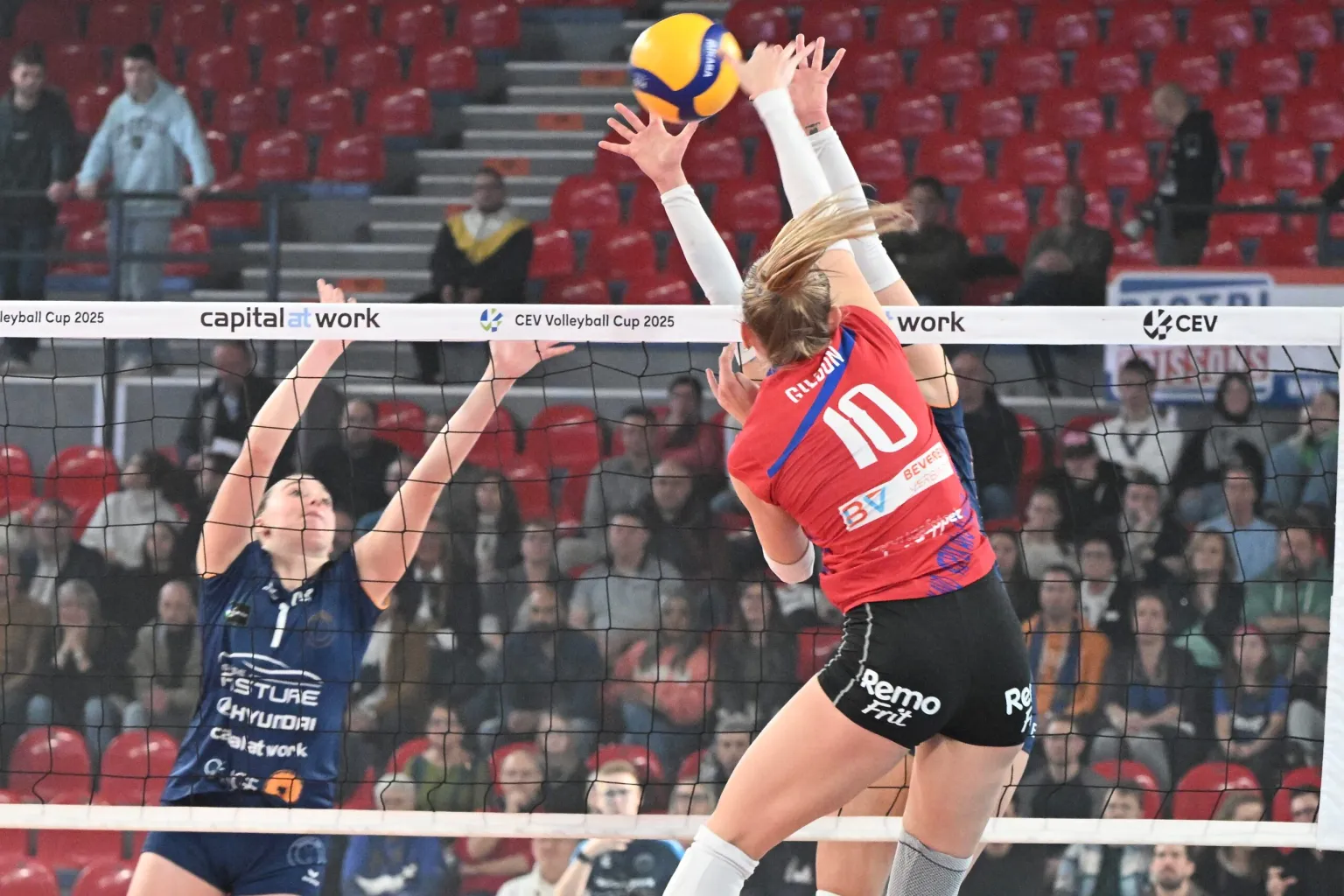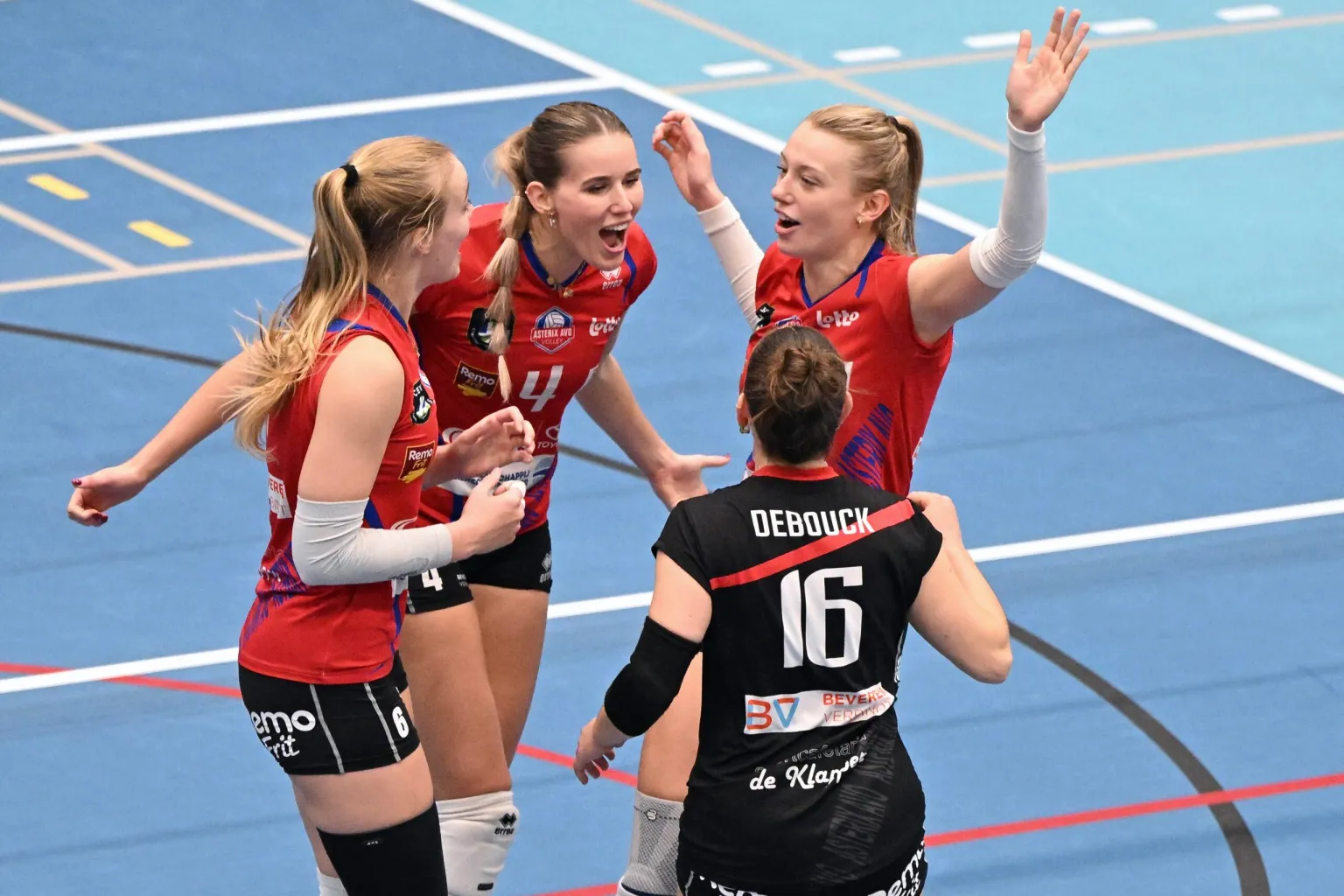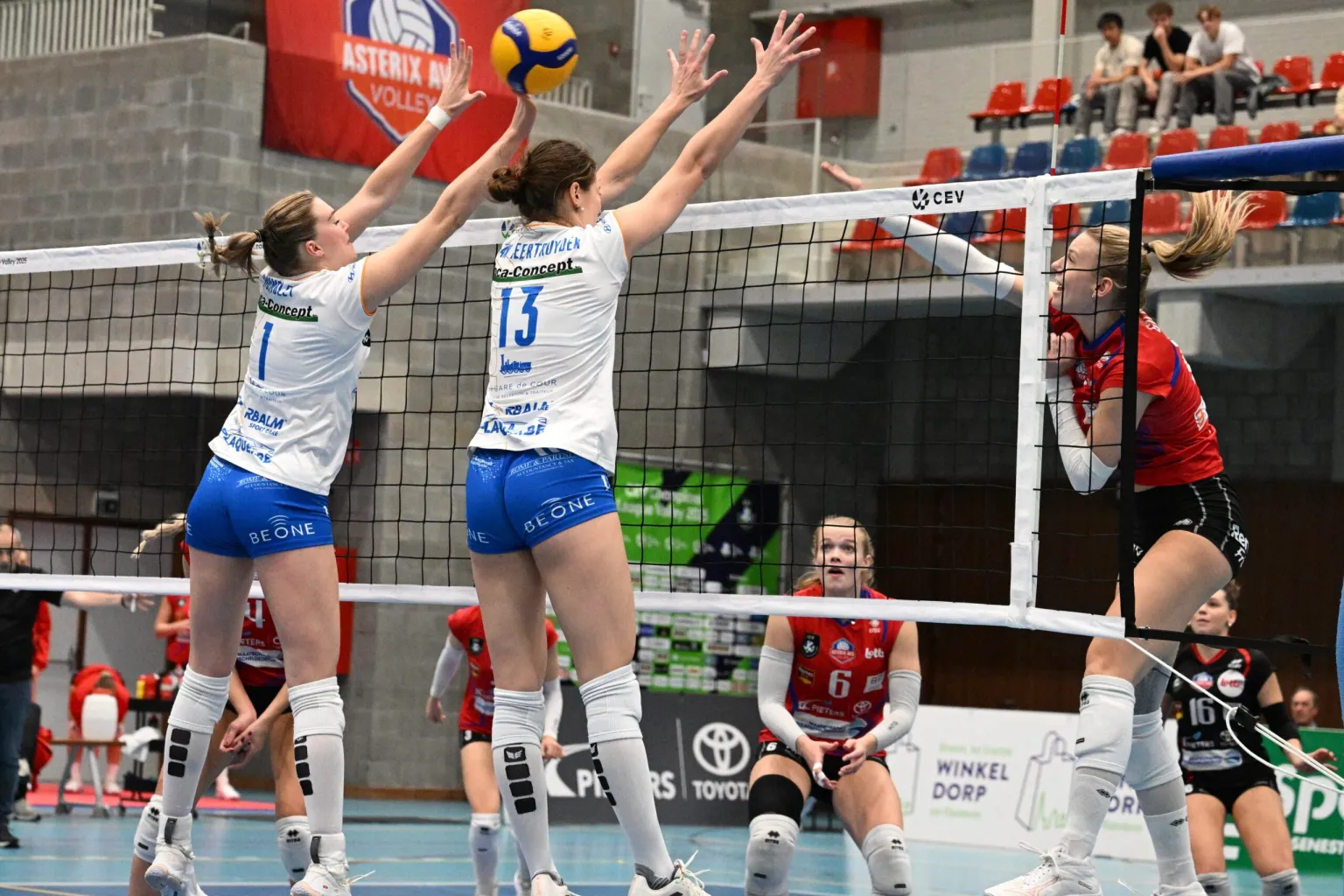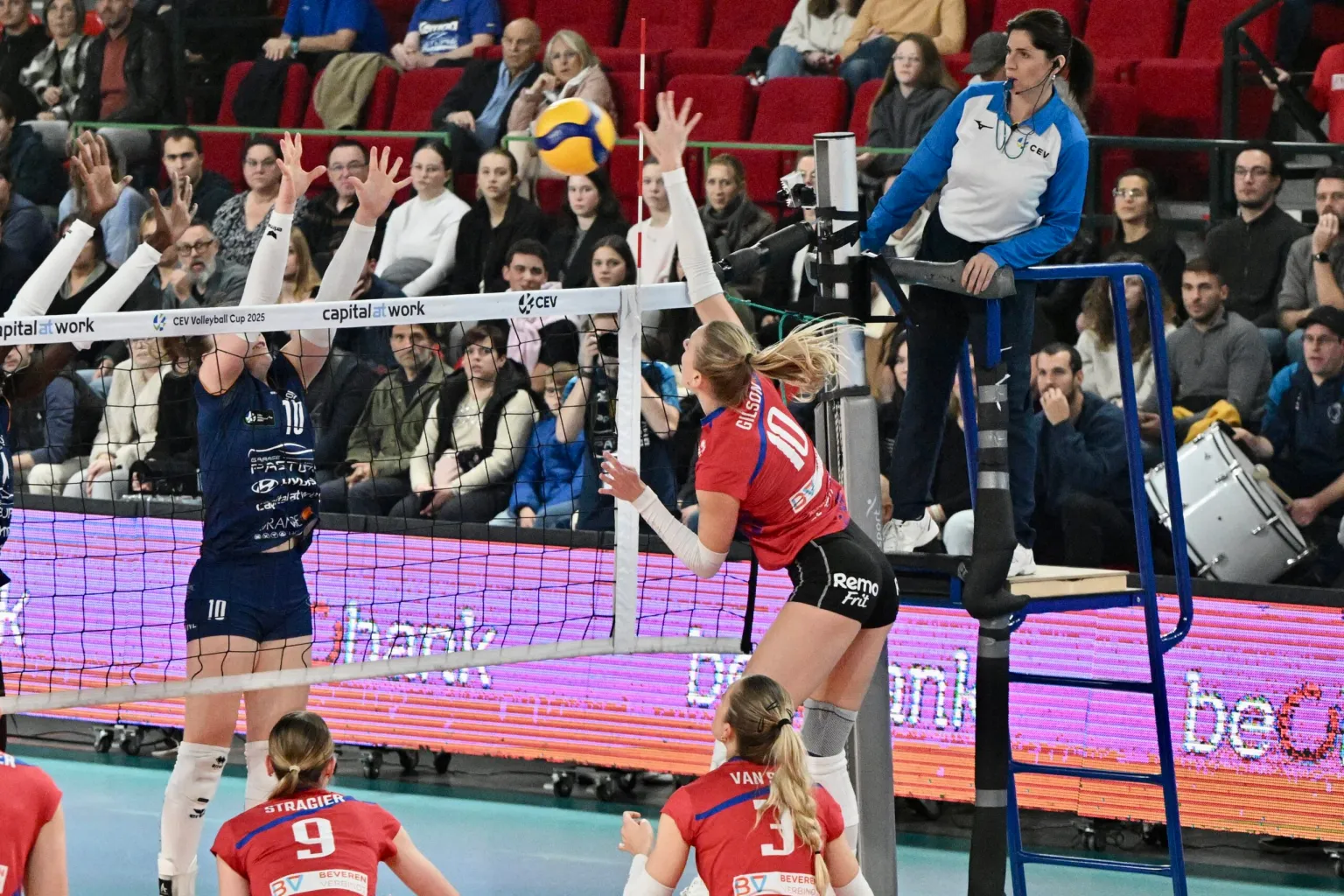From Injuries to Revival: Helena Gilson's Perseverance and Asterix Avo's Challenges
Asterix Avo has some important tasks ahead. In Kieldrecht and later in Beveren, the project of training talented players has been part of the club's DNA for years. Young players are systematically brought into the team. It serves as a springboard for an international career.
Fortunately, they adhere to this vision, as Coach Vansnick's team has recently been dealing with a number of long-term injuries. These talents – future Yellow Tigers – are consequently being thrown into the fray sooner. Manon Stragier is the most recent victim. She suffered a serious ankle injury last weekend against Bevo Roeselare and will be out for weeks. Kaat Cos has just returned after a long break, and Helena Gilson has been struggling for over a year now.

Right now, the eighth-final of the CEV Cup is on the calendar. Volero Le Cannet is a top French team with only foreign players in their starting lineup. Notably, young volleyball players from all corners of Europe. Except for Rios, the Brazilian setter who already played volleyball in Poland. There’s also main attacker Fingall, who comes from the USA. The rest are promising young women from Germany, Serbia, and Belarus. Tall and brimming with talent. The Lithuanian Staniulyté may still be familiar to Belgian volleyball fans, as she played for Tchalou Volley five years ago.
In addition, on Saturday, the first match of the Belgian Cup semi-final will be played against Oudegem. This is likely an even more important encounter for Coach Vansnick’s team. But at this very moment, the Asterix Avo coach is dealing with these injuries during these hectic weeks. The player who has been hit hardest is Helena Gilson. The Limburg attacker has been experiencing a 'yo-yo' effect for over a year now. A mentally exhausting swing, back and forth, from recovery to relapse into new or old injuries.

Helena, can you describe how this long-term injury has affected you as an athlete? Was there a moment when you had to redefine yourself, outside of your performances on the court?
Helena Gilson: "I think that due to my injury, I’ve become more in touch with my ‘core self’. I have a better understanding of what I stand for, what my limits are, and what I want to fight for. I feel that during my rehabilitation, I’ve become more mature and that I approach volleyball, as well as all other aspects of life, in a different (perhaps better) way. My perseverance has been tested, but I can now confidently say that I am a fighter. My mindset has grown to the point that I can bounce back more easily after a tough moment.”
"My perspective on my sports career has changed. Before my injury, I wanted to give everything to the sport. Now, I’m happy when my knee holds up. I no longer look at the long term. I try to appreciate the small victories I achieve now. And I’m quite proud of that."
How did this injury test your mental resilience? Were there moments of doubt that you now perceive differently compared to when you were in the middle of the recovery process?
"During my rehabilitation, I went through a few low points. Moments when I thought, 'This will never get better.' When I look back on those moments, I sometimes smile at my own reactions. I always trusted that I would make it. Now, I am firmly convinced that there is no challenge I cannot handle, at least mentally."
"Rehabilitation is really a time for reflection. In those moments, you come face to face with yourself. I received enormous support from my parents. They are worth their weight in gold. I probably don’t thank them enough for it. Without them, I wouldn’t be where I am today. The teams of physiotherapists and coaches were also instrumental. During the tough times – and there were definitely tough times – I had an excellent safety net around me. They pushed me back into a positive mindset."
"Moreover, all my teammates knew that I was always working hard, again and again, to get back to fitness as quickly as possible. Since I was always present on the sidelines to cheer the team on, there was never a gap between me, as a recovering player, and the others. Thanks to an excellent team dynamic, I never felt isolated or left out. I never felt guilty for not being able to help the team either. After all, it wasn’t my choice to sustain such a serious injury."

You’ve spent a lot of time with medical teams and rehabilitation specialists. How much has that experience now become an integral part of your sporting approach? Do you trust your body and your recovery team more now?
"I did most of my rehabilitation at *Move to Cure*. There, you always meet athletes who are going through the same thing. I could share my frustrations with them because they knew exactly what I was going through. The physiotherapists were always close to me and provided the right support. And of course, my family, the coaches, and my teammates made sure I never felt like I was facing it alone."
"I still go to *Move to Cure* twice a week. I trust my physiotherapist completely. During this busy period, it’s reassuring that he confirms everything is going well. I know my body inside and out by now. I know what signals to watch for, but it still feels good to have that confirmation from someone else."
Can you explain how you managed the tension between wanting to return to the field and the fear of getting injured again?
"I’ve had nightmares about the moment I got injured. Sometimes, I relived the entire scenario. I decided to talk to a psychologist, and I think that really helped me. I also shared my fears with my physiotherapists and my coaches. I noticed that the more I talked about my fears, the better it got. During training, I sometimes still experience moments when something momentarily blocks in my mind. In those moments, it’s incredibly helpful to feel the support of everyone around me and to know it’s okay if you need to try something again."

After months of recovery, what gave you the strength to come back and perform at the highest level again, despite the uncertainty that comes with it?
"I mainly wanted to prove to myself that I could do it. That was my biggest driving force. I’m doing this for myself, not for anyone else. I work part-time as a physiotherapist. Even at my practice, they are very involved in my recovery process. I always plan my hours around training and physiotherapy sessions. Getting better is my priority. The rest of my life is built around that."
"Once I started to regain my level, I really began to enjoy every moment I was back on the court. It’s a bit of a positive cycle. I work hard and am rewarded with beautiful moments on the court. The matches against Tchalou for the European Cup, the upcoming semi-finals… All of it makes me want more, and no effort feels too great. I put in all that hard work with great pleasure."
What does ‘complete recovery’ mean to you now? Is it purely physical, or do you have a broader definition of what it means to return as a person and an athlete?
"I don’t see myself as fully recovered yet. Because I’m not yet the player I was before my injury. Physically, I’m doing well, and mentally, I’m stronger than ever. As a top athlete, you always want more. To be stronger, to jump higher. It’s a growth process, and you could ask the question: is that process ever truly complete?"*
Text: Walter Vereeck
Photos: Rudy Pollé